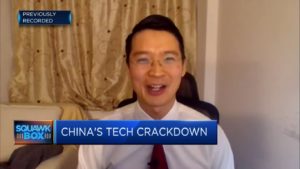After China,
VC's like William Bao Bean, now focus on India, in achieving its goal of getting to 4 billion mobile-only users,
he tells in Techcircle. Many of the lessons learned in China, he can now apply in India, he says.
Techcircle:
What we look for are companies that solve a problem for people in more than one market. If you look at sectors such as fintech, media, ecommerce and social commerce, healthtech, and education, people across markets tend to have similar type problems, especially when they are on $50-$200 Android, getting access to digital for the first time and there is leapfrog effect.
I lived in China for 20 years, came to India in 2005 – we have seen this play out market by market. Every market is not the same, you have to change, localize, optimise for each market. But the challenges that consumers and businesses have and the problems that need to be solved are somewhat similar. So, we have the experience and we are looking for amazing talent.
Most of our founders are serial entrepreneurs. In our last batch, entrepreneurs had seven exits, one team was part of the founding team of a unicorn. Most of the entrepreneurs we work with are not kids. We have some that are young, but usually they have been around the block.
When you want to scale up, it is usually better to have a product market fit then scale, not scale and find product market fit. We are looking at companies that are at product market fit or almost there...
In India, it’s no longer a two-dimensional chess game where you can see all the different players. In 2020, everyone is going to have to learn 3D chess.
There are startups coming from below and then there’s big guys coming from the top. So if you switch the wrong way, they are going to crush you. We need to understand and be aware of the increasing complexity of the market.
From an investment perspective, the easiest thing to do is to look at what worked in China. There’s a decent chance it will work in India.
We are really focused on social commerce. Learning about buying something, not just from an ad or from search, but from a recommendation from a person. Social commerce can be a physical product or can also be a services. In education, we would like to see startups that tech-enable teachers, transforming them from being a YouTuber to a small and medium business person. From making $200 a month to making $3000 a month.
We are also pretty focussed on fintech.
One area that is kind of new in India is monetizing with games. I don’t think people have really cracked the code here in games. We are going to watch out the game space. We just have to open games up for audience in a way they can accept it at a price point they can accept and afford.






